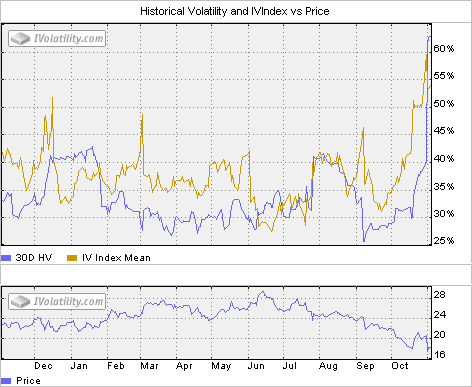Is it time buy LEAPs? Here’s the answer
Let’s say you want to purchase call options in stock XYZ. What time frame makes the most sense? Do you play a nearer month, paying less in premium to begin with, but more in daily decay? Or do you go LEAP?
Most of what I read, suggests the latter. But does that make sense? I would argue that neither is an inherently better idea, and the most important factor in the decision should be your particular goals for the trade. In other words, make sure you know what is implied in the bet you make.
Since it’s all the rage apparently, let me use a baseball analogy here. Let’s say you’re a GM, and deciding whether to give Player X a short term deal with a high annual salary, or a longer term deal with a lower per annum. If you think Player X is a long-term buy, and you think contracts will in general get more expensive in the future, then a long-term deal makes sense. If neither of those is true, and even if you expect contract levels to merely hold steady over the next few years, you’re clearly better off signing players to shorter deals and remaining flexible.
It’s really the same principal with LEAP calls. If you like a stock and ALSO think that volatility will trend higher, then LEAPs make sense. If you think volatility will hold steady, or decline, then it pays to go shorter term.
For example, here’s a TTWO volatility chart, courtesy of www.ivolatility.com

Not shown, but the Jan07’s trade for a mid to low 40’s volatility.
So let’s say you’re of a mind to buy some calls in
(
TTWO |
Quote |
Chart |
News |
PowerRating). What time frame makes the most sense? Personally, I’d prefer a nearer option at a low 50’s/high 40’s volatility and take my chances that the current instability remains. But that’s just me. If you think volatility will hold here, then LEAPS are the play.
Adam Warner Adam Warner is a proprietary trader for Addormar Co., Inc., specializing in option and derivative strategies. Prior to Addormar, he was an Equity Options Market Maker on the floor of the American Stock Exchange from 1988-2001.
